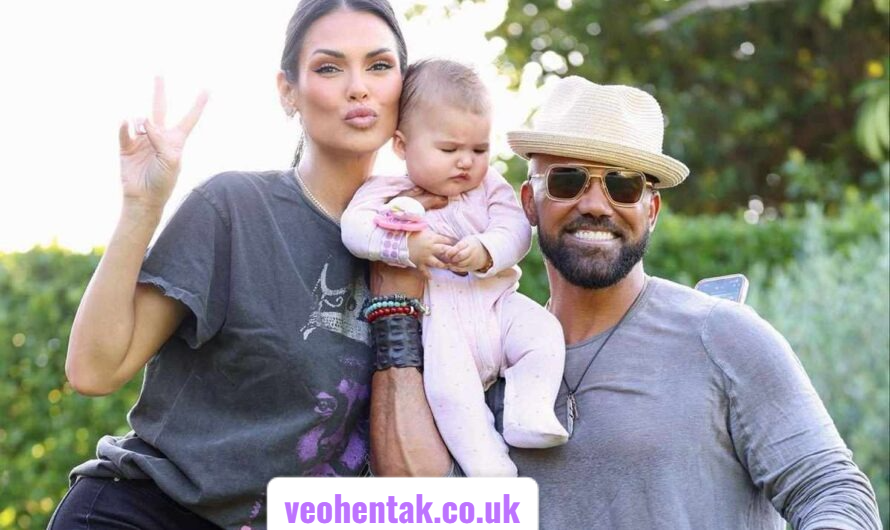Sherrod Moore was the father of actor Shemar Moore, a U.S. Army veteran and former Black Panther. He spent time in prison, lived a life of activism, and later reconciled with his son. His life reflects a journey of struggle, personal growth, and a complex father-son relationship that shaped Shemar’s identity and career.
Introduction
Sherrod Moore is best remembered as the father of Hollywood actor Shemar Moore, but his own life story is far more intricate. Born during an era of social unrest, Sherrod’s experiences spanned military service, political activism, and personal hardship. His early absence in Shemar’s life, followed by a later reconciliation, paints a portrait of a man shaped by both societal forces and individual choices. Understanding Sherrod Moore offers insight into how family legacy, personal decisions, and historical context can influence the lives of those around him, particularly the next generation.
Quick Bio Table
| Category | Information |
| Full Name | Sherrod Franklin Moore |
| Date of Birth | September 1941 |
| Age at Death | 78 (2020) |
| Profession | U.S. Army Veteran, Business Consultant |
| Nationality | American |
| Net Worth | Not publicly known |
| Key Highlight | Father of Shemar Moore, former Black Panther, prison sentence |
Early Life and Background
Sherrod Franklin Moore was born in September 1941 in the United States. Growing up during a period marked by racial segregation and social tension, Sherrod’s formative years were influenced by the challenges faced by African Americans in mid-20th-century America. Limited public information exists about his childhood, but his later actions reveal a man deeply aware of societal inequalities and determined to assert his own path.
Military Service and Activism
Sherrod served in the U.S. Army, a commitment that showcased both his sense of duty and a search for stability in a divided society. Beyond his military service, he became involved in the Black Panthers, an organization advocating for civil rights and empowerment within African-American communities. His activism reflected a deep commitment to social change but also placed him in conflict with the law, shaping the trajectory of his personal life.
Legal Troubles and Prison Time
Sherrod Moore’s involvement in political activism led to serious legal consequences, resulting in a prison sentence of several years. This period marked a turning point in his life, providing him with time to reflect on his choices. His experience behind bars influenced his later perspective on family, responsibility, and redemption, highlighting the complexities of balancing activism with personal obligations.
Relationship with Marilyn Wilson
Sherrod Moore had a relationship with Marilyn Joan Wilson, a White woman of Irish and French-Canadian descent. Their union, controversial at the time due to racial tensions, resulted in the birth of their son, Shemar Moore. The blending of two different cultural and racial backgrounds created unique challenges for the family, shaping the early experiences of Shemar and influencing his understanding of identity and heritage.
Parenting and Absence
Sherrod’s role in Shemar’s early life was limited. Shemar was primarily raised by his mother, who navigated the challenges of raising a mixed-race child largely on her own. Sherrod’s absence during Shemar’s formative years had a lasting impact, leaving Shemar to grapple with feelings of abandonment while striving to understand his father’s choices.
Also read this: Sydneebeeyxo: Secrets of a Trending Lifestyle and Social Media Influencer
Reconnection with His Son
In later years, Sherrod and Shemar reconnected, working to rebuild their relationship. Shemar has spoken about offering support to his father, providing stability and a home. Their renewed connection reflected mutual respect and understanding, highlighting the capacity for reconciliation even after years of distance and emotional strain.
Sherrod’s Influence on Shemar Moore
Sherrod’s life experiences, from activism to incarceration, profoundly shaped Shemar’s understanding of resilience, identity, and social responsibility. Growing up without his father, Shemar developed independence and empathy, which would later inform his career choices and public persona. Sherrod’s journey remains a critical context for understanding Shemar’s personal and professional development.
Later Years and Career
After leaving prison, Sherrod Moore worked as a business consultant, engaging in small enterprises that allowed him to rebuild his life. While he lived away from the public spotlight, his personal growth and reconciliation with his son became defining aspects of his later years, highlighting his commitment to repairing fractured relationships.
Death and Legacy
Sherrod Moore passed away in 2020. His death marked the end of a complex life story filled with struggle, activism, and eventual reconciliation. Though often absent in Shemar’s early years, Sherrod’s later efforts to reconnect and provide support left a lasting impression, emphasizing the potential for growth and redemption.
Public Perception and Media Narrative
Sherrod Moore is often portrayed in the media as a figure of both controversy and transformation. His activism, legal troubles, and fatherhood provide a narrative of a man navigating societal pressures and personal responsibility. Public interest in Sherrod largely stems from his connection to Shemar Moore, yet his life story stands on its own as an example of resilience and adaptation.
Expert Insights on Sherrod Moore
Experts in social and cultural studies might view Sherrod Moore as a representative figure of a generation that grappled with systemic injustice, activism, and personal reform. His dual identity as a soldier and political activist illustrates the tension between institutional service and social protest, providing valuable insight into historical and contemporary dynamics of race, family, and personal growth.
Analysis of Father-Son Dynamics
The relationship between Sherrod and Shemar Moore exemplifies the complexities of parental influence. Sherrod’s absence created challenges, yet their later reconnection illustrates forgiveness and the human capacity to rebuild bonds. Their story offers a nuanced perspective on parent-child relationships, emphasizing that reconciliation often requires effort, understanding, and mutual respect.
Comparison with Similar Figures
Sherrod Moore’s life parallels other individuals who struggled with balancing activism and family obligations. Like many figures who were absent due to social or political commitments, his story emphasizes the long-term effects of parental absence and the enduring impact of reconciliation, highlighting broader patterns within families influenced by social movements.
Social and Cultural Significance
Sherrod Moore’s life resonates today, illustrating the intersections of race, activism, and family. His experiences remind us that social struggles often extend into personal spheres, shaping relationships and legacies. His story contributes to ongoing conversations about fatherhood, identity, and the role of social responsibility in shaping personal lives.
Lessons from Sherrod Moore’s Life
Sherrod Moore’s journey teaches the value of accountability, reconciliation, and personal growth. Despite early mistakes and absences, his later efforts to reconnect with his son and live responsibly underscore the potential for redemption. His life serves as a reminder that legacies are shaped not just by actions but by efforts to repair and nurture relationships.
Conclusion
Sherrod Moore’s life was multifaceted, encompassing activism, personal struggle, and fatherhood. While his early absence created challenges for his family, his later reconciliation with Shemar Moore highlighted themes of forgiveness and personal growth. His story offers insights into the complexities of family, identity, and societal influence, leaving a lasting legacy that extends beyond his relationship with his famous son.
Frequently Asked Questions
1. Who was Sherrod Moore?
Sherrod Moore was the father of actor Shemar Moore and a U.S. Army veteran.
2. Was Sherrod Moore a Black Panther?
Yes, he was affiliated with the Black Panther movement in the 1960s.
3. Did Sherrod Moore serve time in prison?
Yes, he spent several years in prison during his life.
4. What was Sherrod Moore’s relationship with Shemar Moore like?
It was complicated; Sherrod was absent early but reconciled later in life.
5. When did Sherrod Moore die?
He passed away in 2020.
6. What influenced Sherrod Moore’s life choices?
His military service, political activism, and social environment shaped his actions.
7. What legacy did Sherrod Moore leave behind?
He left a legacy of activism, personal growth, and father-son reconciliation.
Fore more info: veohentak.co.uk


